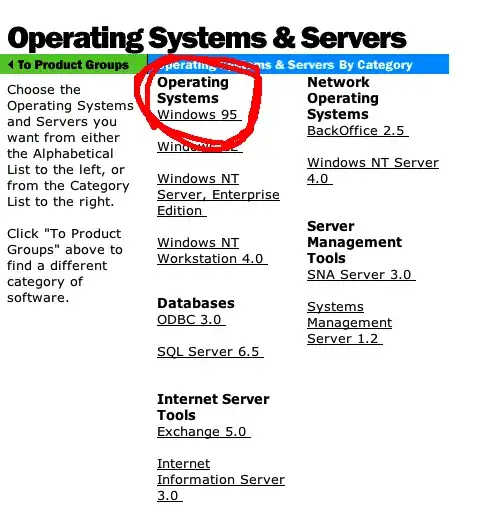As touched upon before, the very definition of operating system is hotly contested, and to some extent has shifted considerably.
Generally there are two polar definitions of OS:
- The system that allows you to operate the computer
- The system that operates the computer.
Within the industry there is considerable disagreement as to the term, and I do not imagine this will be solved in one question, so here is my take on the situation.
In the realms of brand-name operating systems, such as Ubuntu, or OSX, or even Microsoft Windows, of course Windows 95 is an operating system. That is, as with definition 1 above, it provides in one package the software required to allow you to interact with your system with ease. If one operating system bundles another, then that larger package is still an operating system.
However, with reference to the second definition, I would argue that Windows 95 is an operating system supplement. It may have its own set of drivers, but it still builds upon the kernel in MSDOS. MSDOS is what allows the system to boot, provides the lowest-level API.
If you want a middle ground, I have no problem with describing MSDOS as taking on more of a bootloader function (akin to Grub), although if some portion of it remains in memory then I think it must be considered the kernel, and thus the "true" operating system under definition 2.
Lastly, with regards to the kind of personality that insists their definition is superior, and insists everyone else should be branded as "wrong", such people are merely pushing their own agenda, and rarely succeed at it.
